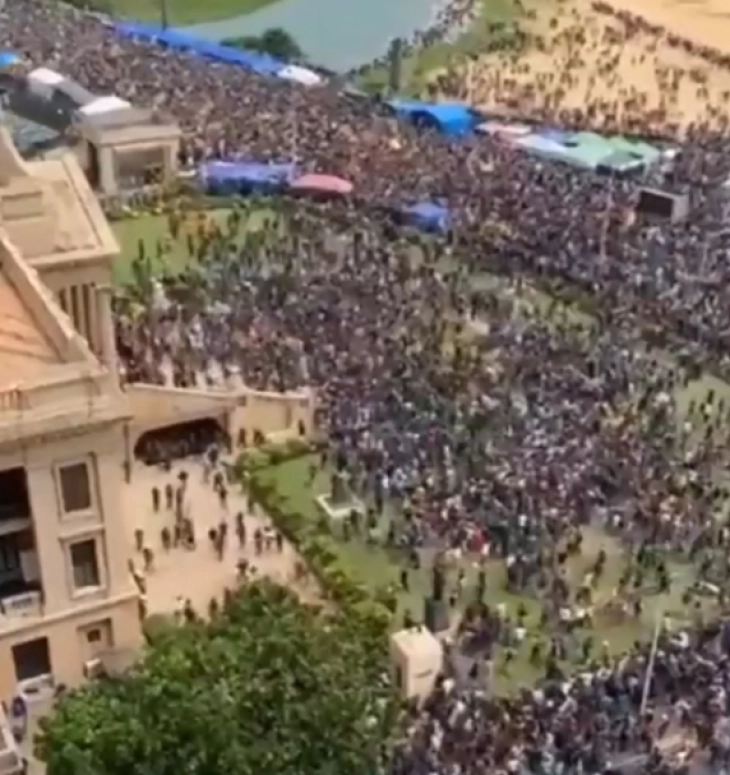Widespread protests boost pressure on Sri Lankan president to go
- Post By Silvana Kocovska
- 11:15, 9 July, 2022

Colombo, 9 July 2022 (dpa/MIA) – Pressure mounted on Sri Lankan President Gotabaya Rajapaksa on Saturday to leave office after protesters occupied his official residence and office after attempts by security officials to disperse the crowds failed, according to officials.
After a three hour stand-off with security forces, in which tear gas was used on several occasions and soldiers fired into the air, the crowds broke through into the official residence. Less than an hour later, they made it into his nearby office.
More than 50 people were injured, most of them amid a stampede after tear gas was deployed.
President Rajapaksa was moved into a secret, safer area for the night.
The speaker of Parliament, Mahinda Yapa Abeywardena, has summoned the leaders of the political parties represented in Parliament to discuss future political steps.
Civil organizations, lawyers and Buddhist monks have stepped up the campaign demanding the resignation of the president, who has 28 months of his term left.
Tens of thousands of protesters, backed by Buddhist monks, arrived in Sri Lanka’s capital on Saturday to demand the resignation of Rajapaksa and the government due to their failure to resolve economic hardships, police said.
More than 100,000 people had gathered for the protest by noon. Security and army forces had been deployed around the president’s residence. Heavy iron barricades were erected in surrounding areas.
The government declared an indefinite curfew on Friday, but lifted it early on Saturday amid protests from lawyers, civil rights groups and Buddhist monks.
“The objective of the curfew was to prevent persons coming for the protest, but they have been forced to lift it due to pressure from the public,” student union leader Wasantha Mudalige told dpa.
Police spokesperson Nihal Thalduwa said that the police will not interrupt any peaceful protest, but would be forced to take action if violence erupts.
The protests come in the wake of an unprecedented economic crisis which has resulted in a shortage of fuel, gas, medicines and food. Sri Lanka lacks dollars for the purchases.
Smaller protests have been ongoing against the president during the past three months.
The president's brother, Mahinda, stepped down as prime minister on May 9, in the wake of violent incidents in which government politician’s houses were set on fire. Another brother, Basil, stepped down from the Finance Ministry's top job on June 9.
Long queues continue outside fuel stations, where only limited fuel stocks available.
The president’s office said on Friday that measures were being taken to restore supplies of fuel, gas and medicines. Sri Lanka has also appealed to the International Monetary Fund for a bailout package.







